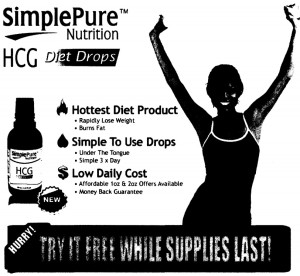October 13, 2017

This Tuesday, in furtherance of the terms of settlement of a 2014 “free trial” lawsuit, the Federal Trade Commission (the “FTC” or “Commission”) began mailing approximately $10 million worth of refund checks to hundreds of thousands of consumers who requested free trials of certain dietary supplements and weight loss products but were ultimately required to pay for same.
Why did the FTC take issue with the subject “free” trial offers?
FTC Free Trial Lawsuit
In 2014, the Commission sued a slew of California and Nevada companies and their respective officers in the U.S. District Court for the District of Nevada (Case No. 14-cv-1649). The free trial lawsuit alleged that the defendants deceptively marketed dietary supplements (such as pure green coffee bean and other purported health products) by, among other things, offering free trials as “negative options” without making proper disclosures to consumers. The defendants allegedly enrolled “free trial” customers into membership programs and subsequently charged such customers recurring monthly fees if they did not cancel their program enrollments within a limited time period.
Settlement Agreement and Payment
In April 2016, the aforementioned defendants and the FTC reached an agreement settling the Commission’s free trial lawsuit and deceptive marketing claims. Under the terms of the agreement, the defendants are permanently barred from engaging in future weight loss product marketing activities. Additionally, the settlement agreement required the defendants to turn over approximately $10 million in assets to redress consumer injuries. In the event that the defendants misstated or failed to disclose any material financial assets to the FTC, an avalanche clause would be triggered and the amount due would balloon to $105 million.
On October 10, 2017, the Commission announced that it had begun mailing 227,000 refund checks worth more than $9.8 million to consumers who bought the above-referenced dietary supplements and other weight loss products. The checks, averaging $43 each, must be cashed within 60 days or will become void.
Protect Yourself
As demonstrated by the above-referenced free trial lawsuit, the FTC continues to aggressively prosecute claims of deceptive marketing practices involving “free” offers. Any hidden, potentially misleading or insufficient disclosures may place marketers at serious risk of legal action. As such, marketers who wish to avoid a potential free trial lawsuit or regulatory investigation should carefully review the FTC’s Guide Concerning Use of The Word “Free” and Similar Representations and consult with experienced counsel regarding their marketing practices. If you are interested in learning more about this topic, or need to review your marketing practices or disclosures, please email us at info@kleinmoynihan.com, or call us at (212) 246-0900.
The material contained herein is provided for informational purposes only and is not legal advice, nor is it a substitute for obtaining legal advice from an attorney. Each situation is unique, and you should not act or rely on any information contained herein without seeking the advice of an experienced attorney.
Attorney Advertising
Related Blog Posts:
Deceptive Weight Loss Marketing Results in $30 Million Judgment
FTC Pursues Marketers of Weight-Loss Supplements
FTC Lawsuit Alleging Deceptive Marketing of “Free” Products and Continuity Plans Settles



